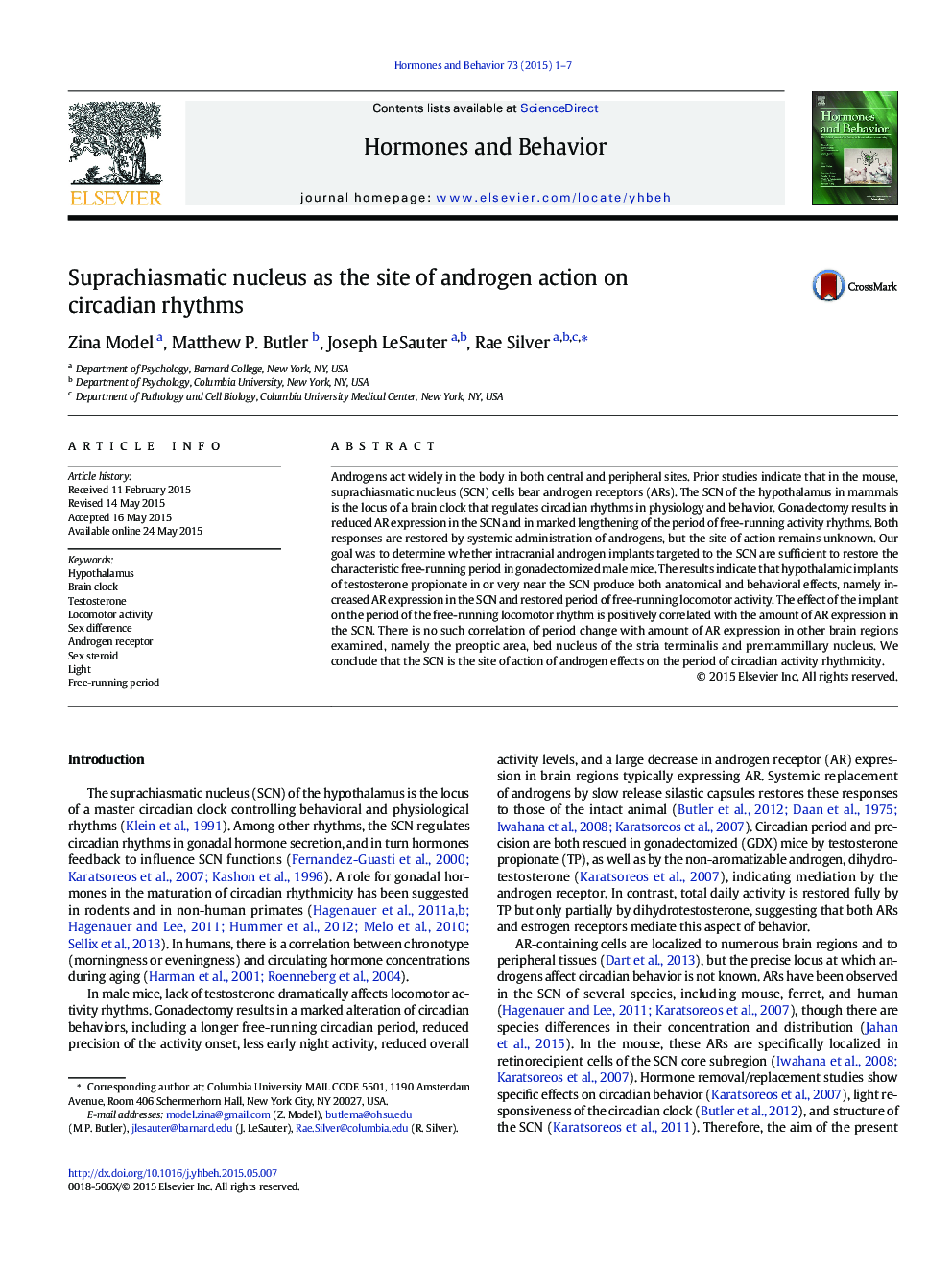| Article ID | Journal | Published Year | Pages | File Type |
|---|---|---|---|---|
| 6794824 | Hormones and Behavior | 2015 | 7 Pages |
Abstract
Schematics on the left depict androgen receptor (black dots) expression in the suprachiasmatic nucleus (SCN) in an intact mouse (top), and changes following castration (middle), and implantation with a testosterone propionate pellet (bottom). After gonadectomy, androgen receptor expression declines in the SCN and circadian period lengthens. Subsequently, testosterone propionate pellets (T) targeting the SCN restore androgen receptor expression in the SCN with a higher concentration on the side of the implant. The schematic on the right shows an actogram representing the activity of the mouse as a function of time of day, on serial days. The actogram shows the activity pattern of the intact animal and changes in the period of locomotor activity consequent to gonadectomy and following intracranial implantation of testosterone propionate.146
Keywords
Related Topics
Life Sciences
Biochemistry, Genetics and Molecular Biology
Endocrinology
Authors
Zina Model, Matthew P. Butler, Joseph LeSauter, Rae Silver,
